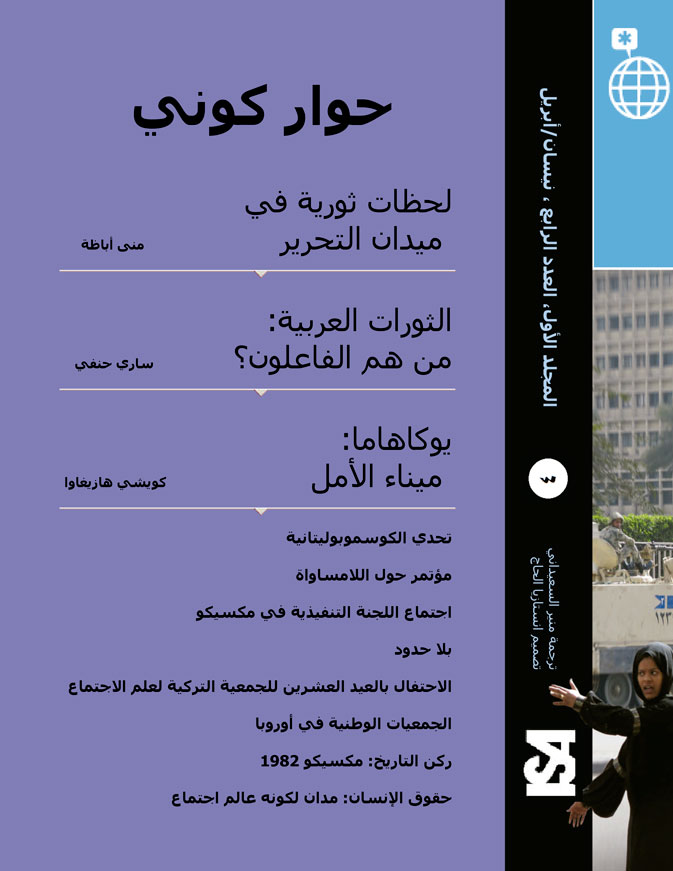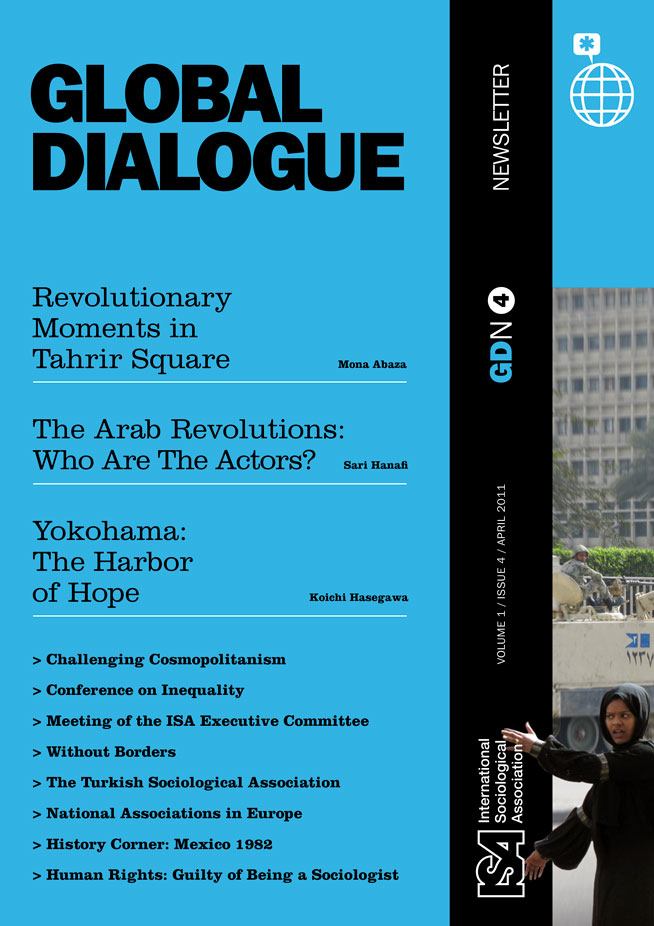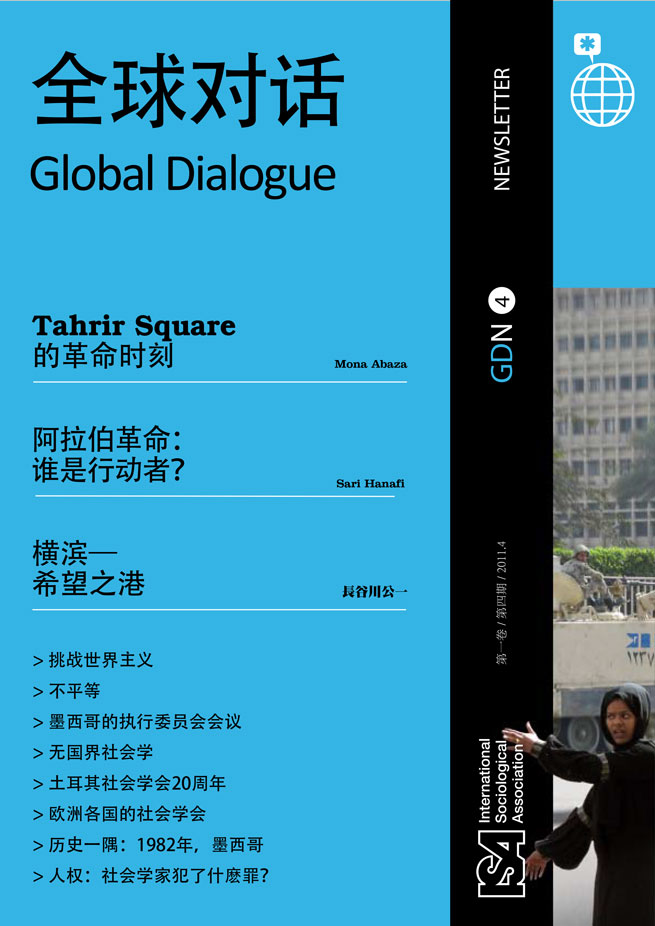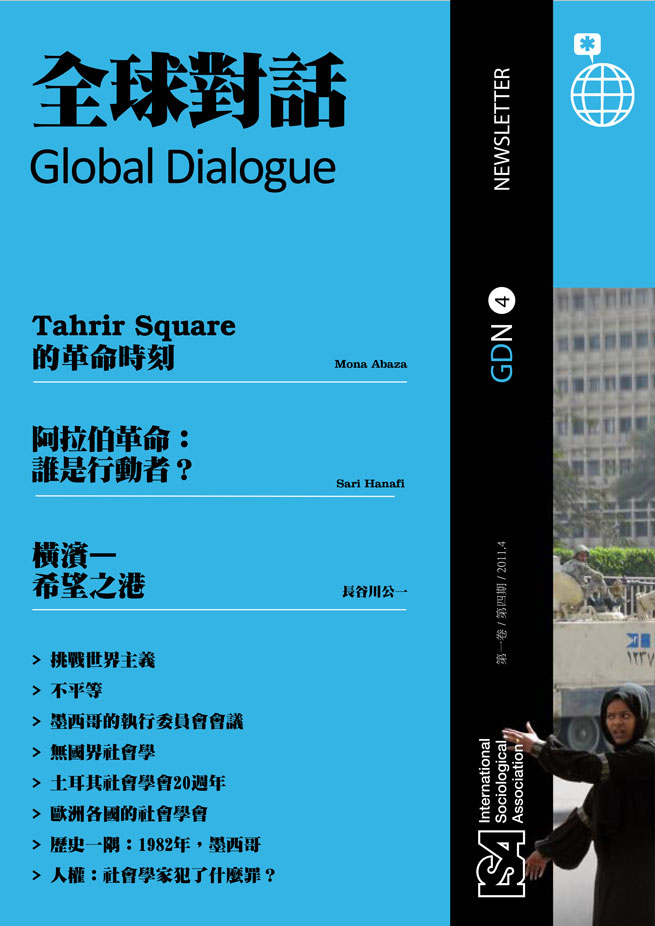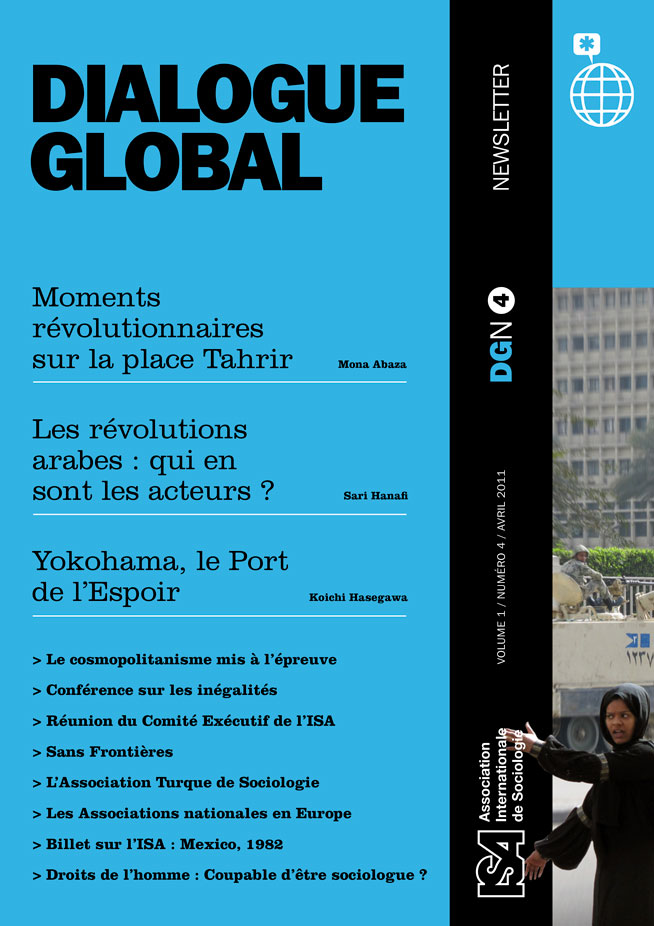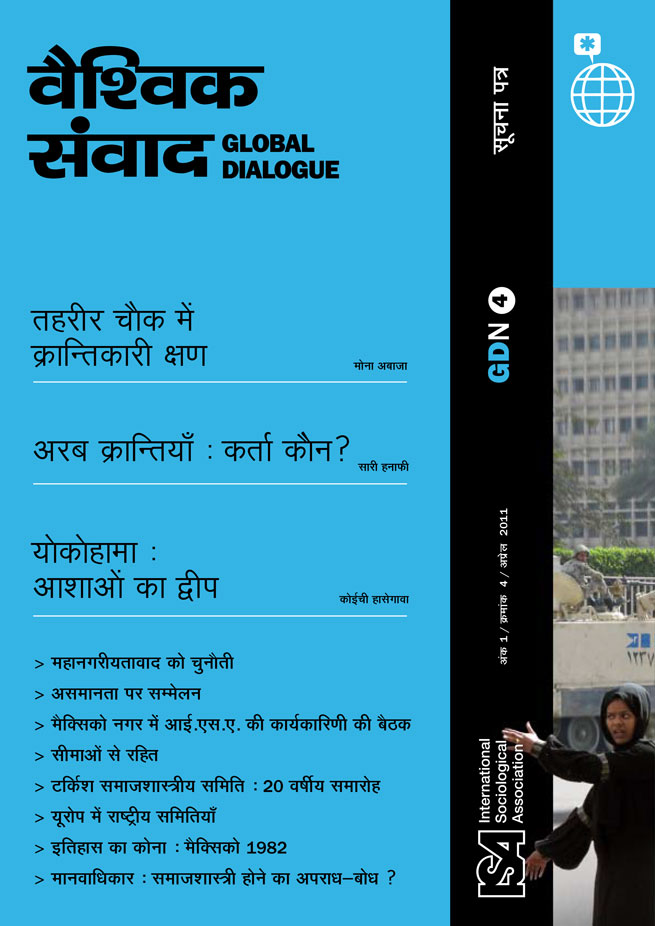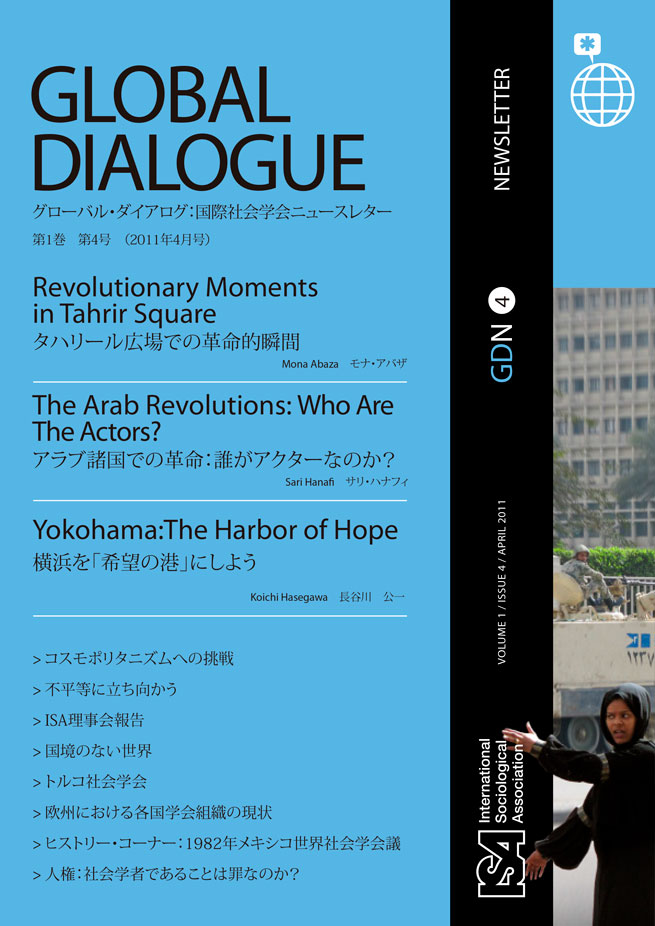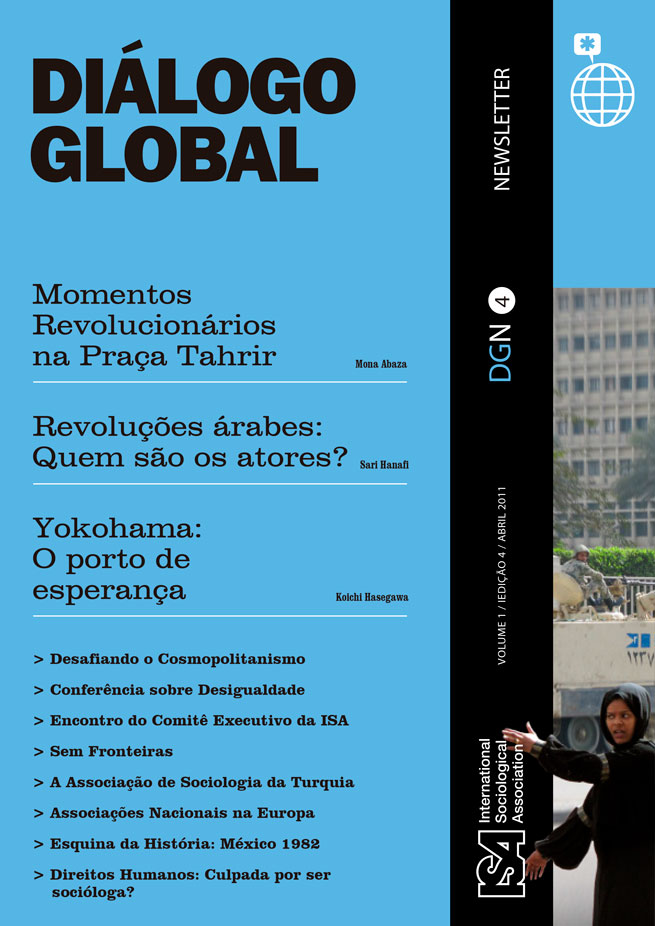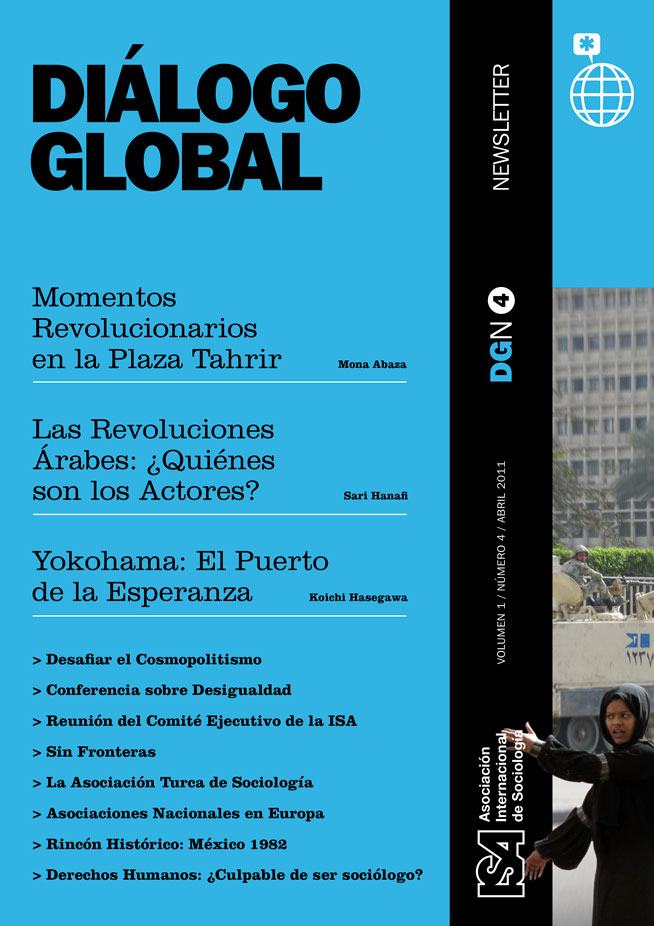Read more about Debate
Challenging Cosmopolitanism
by Sujata Patel
May 07, 2011
Alongside the Executive Committee Meeting of the ISA in Mexico City, March 21-25, 2011, the Faculty of Political and Social Sciences of the National Autonomous University in Mexico City collected together prominent Mexican, Latin American and other international colleagues to debate inequality. In three lectures, the President of the Association, Michael Burawoy, Rolando Cordera and Göran Therborn explored the scope of the study of inequality, its origins and development in the social sciences and the various implications for the contemporary world.
Three panel discussions involving eighteen colleagues from different countries gave us a comprehensive overview of the theoretical debate around inequality, knowledge of its different social and cultural expressions, and perspectives from different regions. We explored the risks of deepening inequality and how organized communities could address inequalities, which have worsened dramatically over the last thirty years.
From a critical perspective, several colleagues argued that we are at a crossroads of civilization, that the overuse of natural resources and environmental destruction threaten to affect the chances of reproduction of life on the planet. From our concern with wars and disasters to the experience of water struggles, all the participants showed awareness and commitment to the principle of avoiding predation and to searching for real alternatives that would protect our collective existence.
In every session, the study of this complex phenomenon recognized the overlapping and intersecting inequalities involved in discrimination, racism, violence against women, ignorance and indifference to the needs of communities and towns, denial of cultural diversity, and the rise of new groups, sectors and social classes. We were able to draw on speakers’ knowledge of inequality in countries such as India, South Africa, Mexico and other countries in Latin America, Lebanon, Japan, the UAE, the US, Spain, the Philippines, Sweden, France, Russia, Britain. It was an instructive examination of the different meanings and degrees of inequality in diverse cultural contexts. The weaving of this complex web forces us to rethink not only our explanations but also proposals for overcoming inequality and the problems it generates.
Finally, different conceptions of justice were present in our discussion, from those introduced by John Rawls and Amartya Sen, to the sociological contributions of Göran Therborn, David Harvey and Pierre Bourdieu. Understanding the relationship between inequality and exclusion, inequality and violence, inequality and power relations and their impact on the organization of public space demonstrate the limitations of narrow disciplinary perspectives. The urgency of the situation globally calls on sociology to influence public debate.
This was the first of a series of forums, workshops, and seminars that will engage the question of inequality in the world today – discussions that will continue in the ISA Forum in Buenos Aires (2012) and culminate in the Yokohama World Congress in 2014. This should inspire new directions in sociology that is now enjoying international resurgence.
Raquel Sosa Elízaga, Universidad Nacional Autónoma de México, ISA Vice-President for Program
This issue is not available yet in this language.
Request to be notified when the issue is available in your language.
If you prefer, you can access previous issues available in your language:
